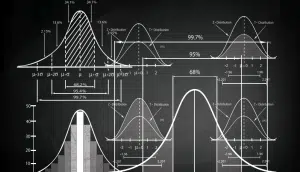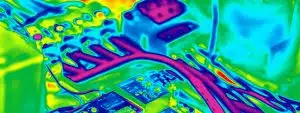ABSTRACT Graphite foils with ultra-high spreading capacity and insulation sheets with ultra-low thermal conductivity were combined in a thermally stressed Google Pixel 3XL (Pixel) to significantly increase steady-state system performance, while maintaining safe device touch (skin) temperatures (TS ), as compared to the out-of-the-box device configuration. Four unique thermal … [Read more...]
Is That Normal?
Introduction These columns on statistics began by describing the field of statistics as using the mathematical laws of probability to deal with data uncertainty [1]. Many statistical tools developed to apply probability do assume that data are drawn from a normally distributed population, in which the probability distribution function, f(x), of a population follows Equation … [Read more...]
Oscillating Heat Pipe Thermal Performance and Stability Limits
A heat pipe is a closed system that contains a saturated fluid. When heat is dissipated in one region of the heat pipe, liquid in that area boils or evaporates, which produces vapor that moves to another area in the heat pipe where it condenses. The condensed liquid then returns to its starting point to transport energy from the heat input region(s) to the heat output … [Read more...]
Utilizing Laser Flash in Combination with Finite Element Modeling to Analyze Thermal Conductivity of Interfaces and Layers within Complex Structures
Abstract The utility of the laser flash thermal conductivity measurement can be greatly expanded to more complex structures by modeling laser flash results using Finite Element Models. This approach is illustrated using a test fixture with 4 heat sinks, where heat spreading is a significant factor. If traditional 1D thermal diffusion models for laser flash are used, thermal … [Read more...]
Thermal Penalties of Bandwidth Enhancements for Li-Fi Communication
The rapid increase of device connectivity, coupled with constantly growing data transmission rates, increases the demand for new communication channels. Illumination systems employing Light Emitting Diodes (LEDs) have the potential to fulfill this demand. LEDs are versatile components that are used as a light source in a vast number of products: indoor and outdoor lighting, … [Read more...]
- « Previous Page
- 1
- …
- 13
- 14
- 15
- 16
- 17
- …
- 36
- Next Page »










